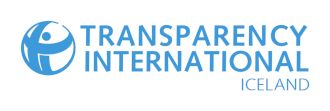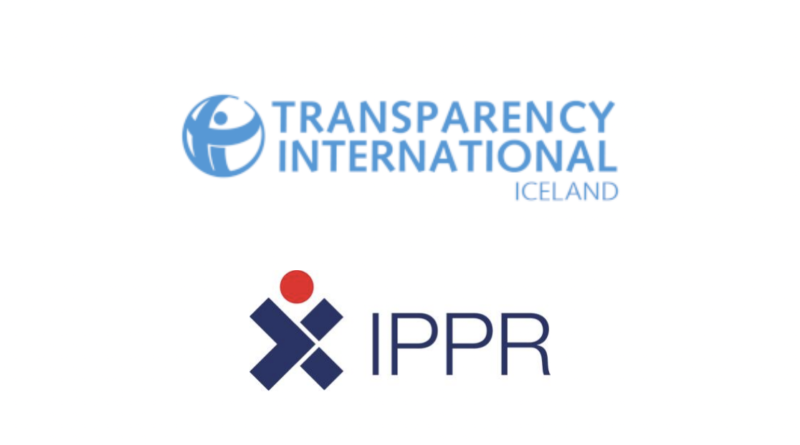FISHROT three years on: a call for restorative justice
This is a joint statement issued by the Institute for Public Policy Research (IPPR) in
Namibia and Transparency International Iceland.
[ Statement in ENGLISH – PDF – Word ] [ Yfirlýsing á Íslensku – PDF– Word]
· For further information contact:
Graham Hopwood, Executive Director, IPPR – director@ippr.org.na
Thor Fanndal, Executive Director, Transparency International Iceland –
thor@transparency.is
Three years ago today, the Fishrot scandal was uncovered. Over 30,000 leaked documents revealed how, since 2012, Iceland’s largest fishing company Samherji had paid millions of dollars to political figures and their associates in Namibia to divert fishing quotas away from local businesses and inflate its own financial performance and profitability.
Fishrot is the largest corruption scandal in both Namibian and Icelandic history. The value of transactions flagged as suspicious by Namibia’s Financial Intelligence Centre in connection with the Fishrot scheme is reported to be around US$650 million. This has had a devastating impact on Namibia’s fishing industry, local fishing communities and broader economy. Thousands of local fishermen are thought to have lost their jobs. The impact will undoubtedly be felt for generations.
Three years on, Samherji acts with apparent impunity while the communities affected by Fishrot have seen no meaningful compensation and the perpetrators have not yet faced justice. In Namibia, ten Namibian suspects are facing trial, including the former Fisheries Minister, Bernhard Esau, and the ex-Minister of Justice, Sakeus Shanghala. The Namibian Prosecutor General also brought charges against three Icelandic Samherji executives, but no steps have been taken to extradite these individuals.
In Iceland, no formal charges have been laid against Icelandic suspects. Instead, Icelandic police are investigating journalists reporting on Samherji, undermining press freedom and anti-corruption efforts. The Icelandic response to Fishrot has been called “almost embarrassing” by Drago Kos, Chair of the OECD Working Group on Bribery in International Business Transactions.
This is unacceptable and more must be done. We call on:
- Samherji to submit to a process of reparation and remediation – to include:
- an assessment of the human rights and economic impact of Samherji’s Namibian activities;
- full reparation to affected communities;
- an operational grievance mechanism to address specific issues of local communities and individuals;
- Samherji’s international suppliers, customers, and business partners to review their arrangements with Samherji, in particular, in light of their increasing ESG (Environmental, Social and Governance) and ethical supply chain obligations and expectations;
- the Icelandic authorities to initiate criminal proceedings and take active steps to address corruption carried out by Icelandic citizens;
- the Namibian authorities to introduce further governance reform – particularly by amending the Marine Resources Act, which enabled Fishrot – and to bring those responsible to trial as soon as possible, including applying to extradite the Icelandic suspects without further delay; and
- international governments, including the US, the UK, Germany, France, Poland, the Netherlands, Norway and the Faroe Islands, to take all available steps to ensure that proceeds of crime are not entering their economies through Samherji’s international investments made using proceeds of its Namibian business.
It is time for all stakeholders to prove their commitment to fighting corruption and bring justice and reparation to the people of Namibia.
Ends/
1 https://www.namibian.com.na/204285/archive-read/Financial-intelligence-flagged-Fishrot-deals-worth-N$10-billion
2 https://www.transparency.org/en/press/iceland-investigations-against-journalists-fishrot-samherji-undermine-press-freedoms-anti-corruption
3 https://mobile.twitter.com/project_lawyers/status/1539236020696322049
This is a joint statement issued by the Institute for Public Policy Research (IPPR) in Namibia and Transparency International Iceland. This statement is supported by the following individuals and organisations:
Peter Eigen Founder of Transparency International and Fisheries Transparency Initiative
Graham Hopwood Executive Director, Institute for Public Policy Research (IPPR), Namibia
Thor Fanndal Executive Director, Transparency International Iceland
Daniel Bruce Executive Director, Transparency International UK
David Martínez García Executive Director, Transparency International España
Lousewies van der Laan Executive Director, Transparency International Netherlands
Bodil Karlshøj Poulsen Executive Director, Transparency International Greenland
Ilia Shumanov Executive Director, Transparency International Russia
Guro Slettemark Executive Director, Transparency International Norway
Jemima Beukes Deputy Secretary General, Namibia Media Professionals Union (NAMPU)
Carola Engelbrecht Co-ordinator, CIVIC +264 (Civil Society Information Centre) Namibia
Toni Hancox Director, Legal Assistance Centre (LAC), Namibia
Naita Hishoono Executive Director, Namibia Institute for Democracy (NID)
Herbert Jauch Chairperson, Economic and Social Justice Trust (ESJT), Namibia
Mahongora Kavihuha Secretary General, Trade Union Congress of Namibia (TUCNA)
Frederico Links Chairperson, ACTION Coalition (for Access to Information), Namibia
Rinaani Musutua Representative, Basic Income Grant (BIG) Coalition, Namibia
Anna Myers Executive Director, Whistleblowing International Network (WIN)
Henri Thulliez Director, PPLAAF (Platform to Protect Whistleblowers in Africa)
Zoe Titus Director, Namibia Media Trust (NMT)
Eva Van der Merwe Executive Director, International Lawyers Project (ILP)
Nadège Buquet Executive Director, Transparency International France
Karina Carvalho Executive Director, Transparência Internacional Portugal

